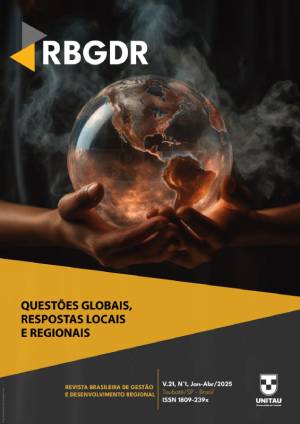THE SCIENTIFIC PRODUCTIVITY OF DOCTORS IN REGIONAL DEVELOPMENT: A STUDY USING LOTKA LAW
DOI:
https://doi.org/10.54399/rbgdr.v21i1.6564Keywords:
Regional development. Scientific productivity. Lotka's Law.Abstract
This article seeks to answer the following problem: does the scientific productivity of regional development doctors fit in with Lotka's Law? The exploratory and descriptive research was carried out with a quantitative approach. Data were collected from the Sucupira and Lattes platforms and from the websites of the Regional Development PPGs. The research results show that, since the first admission in 2002 and the first thesis defense in 2005, there has been an increase in interest in the field by the holder of two hundred and seventy in one doctorate by the end of 2020. Despite the growth and of valorization, some challenges still have to be transposed for its consolidation. The first concerns the non-adaptation of the productivity of regional development doctors to Lotka's Law. Apparently, scientific productivity is still dispersed and without graduates as protagonists in the academic world. The second challenge concerns the quality of the work in the Qualis/CAPES evaluation criteria. Where we found a small percentage of articles with strata A1 (3.45%) and A2 (6.2%). The third challenge requires that doctors in regional development leave the comfort zone in relation to the language in which their scientific findings are disseminated, as 95.12% of the publications were in Portuguese.
Downloads
Metrics
Downloads
Published
How to Cite
Issue
Section
License
Copyright (c) 2025 Revista Brasileira de Gestão e Desenvolvimento Regional

This work is licensed under a Creative Commons Attribution-NonCommercial 4.0 International License.
Authors who have their papers accepted and published in the Brazilian Journal of Regional Management and Development must agree to the copyright policy CC BY https://creativecommons.org/licenses/by/4.0/.
If the article is accepted for publication, the copyright is automatically assigned to the Brazilian Journal of Regional Management and Development.


















